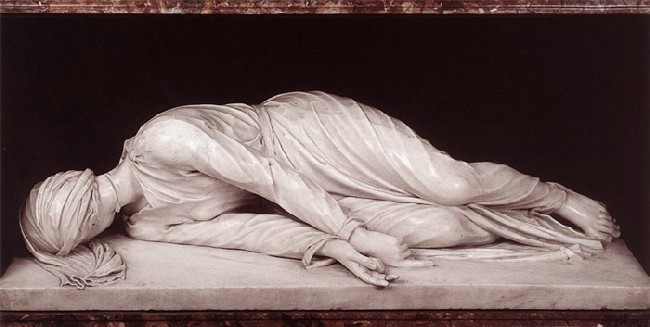
Saint Benedict founded the abbey of Monte Cassino in about 529 AD. At Monte Cassino St. Benedict wrote his famous Rule.
And after a little while what had been the 6th century became the 20th century.
In 1964 upon the rebuilding of Monte Cassino abbey after its destruction in WWII by bombing, Pope Paul VI proclaimed St. Benedict “patron of Europe.”(1)
Near the beginning of the 21st century, new Pope Benedict XVI explained that he chose the Benedict name in part because of his admiration of how St. Benedict influenced an entire continent — helping to create European civilization after the destruction of the Roman Empire.
In 2009 Pope Benedict XVI visited Monte Cassino Abbey and spoke about the Pope’s desire that Europe live by its “Christian principles and ideals that constitutes an immense cultural and spiritual wealth:”
“This is possible but only if one accepts the constant teaching of St Benedict, that is the "quaerere Deum", the quest for God, as man's fundamental commitment. Human beings cannot completely fulfil themselves, they cannot be truly happy without God. It is your task in particular, dear monks, to be living examples of this inner and profound relationship with him, implementing without compromise the programme that your Founder summed up in the "nihil amori Christi praeponere", "prefer nothing to the love of Christ" (Rule 4: 21).”This also applies to my own life, I want to live by the ancient endowment (patrimony) of “Christian principles and ideals that constitutes an immense cultural and spiritual wealth.” And it is true that in my life, the greatest change in my manner of living came when I began following, as best as I could, the Benedictine way of organizing the day and praying the divine office.
A Rule that helped create an entire civilization certainly has had sufficient guidance for one oblate and my manner of daily living.
__________________________
Footnotes:
Picture is Reading by ThunderChild5.
(1) Women for Faith & Family is also the source of this quote:
"In 1964 Pope Paul VI proclaimed Benedict “patron of Europe”, because of his influence in the formation of Christendom in the Middle Ages. The Pope’s letter, Pacis Nuntius (Messenger of Peace), issued October 24, 1964 during the re-consecration of the rebuilt monastery of Monte Cassino. Pacis Nuntius declares:
“Messenger of peace, creator of unity, master of civilization and above all, herald of the religion of Christ and founder of monastic life in the West: these are the proper titles with which to acclaim St Benedict Abbott. On the fall of the Roman Empire, by then exhausted, Europe seemed to fall into darkness ... bereft of civilization and spiritual values”.I cannot say that prior to becoming a Benedictine oblate I was in darkness, but between then and now, I can say that my world is closer to the source of the light. It is a new way of life, a new personal culture.








